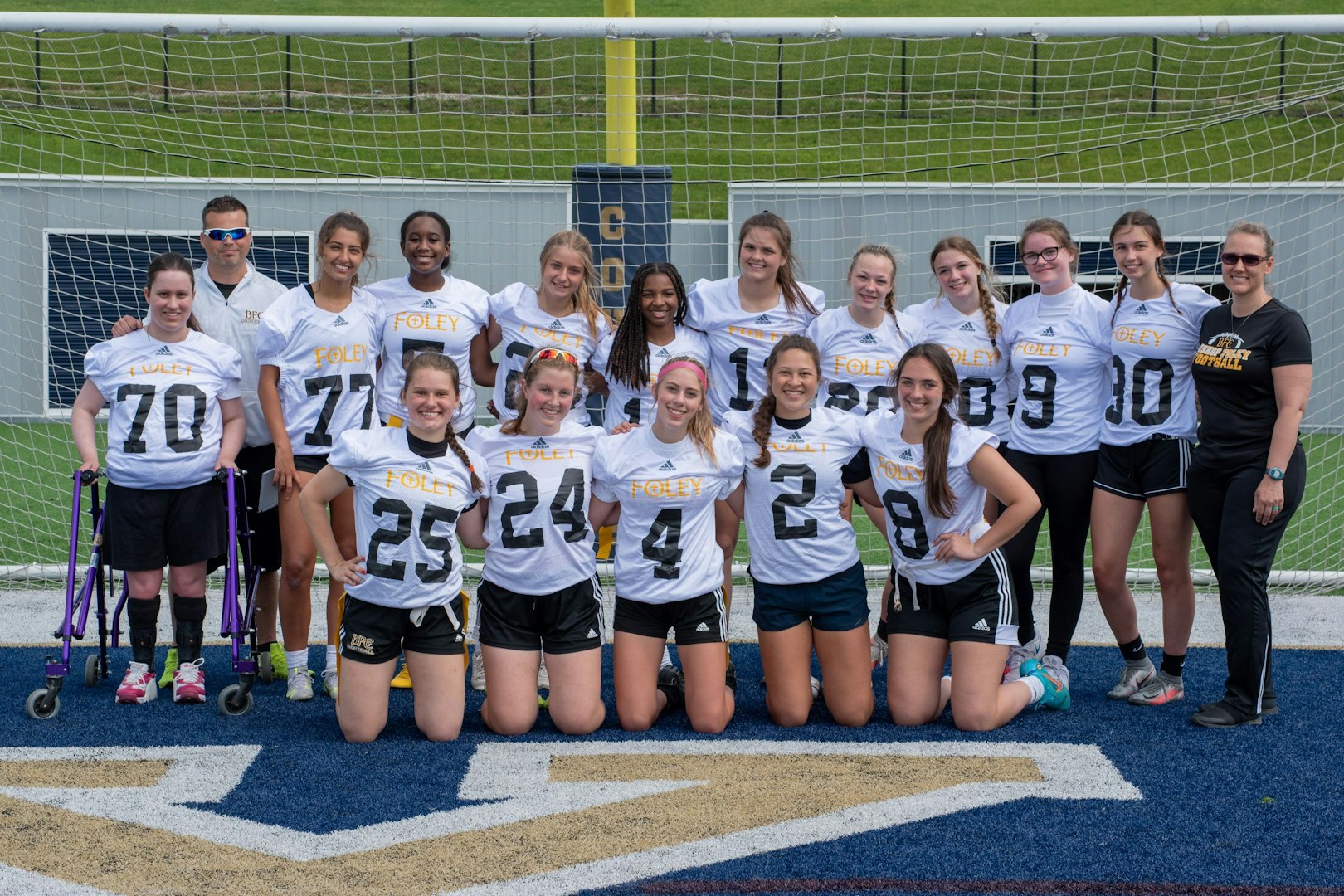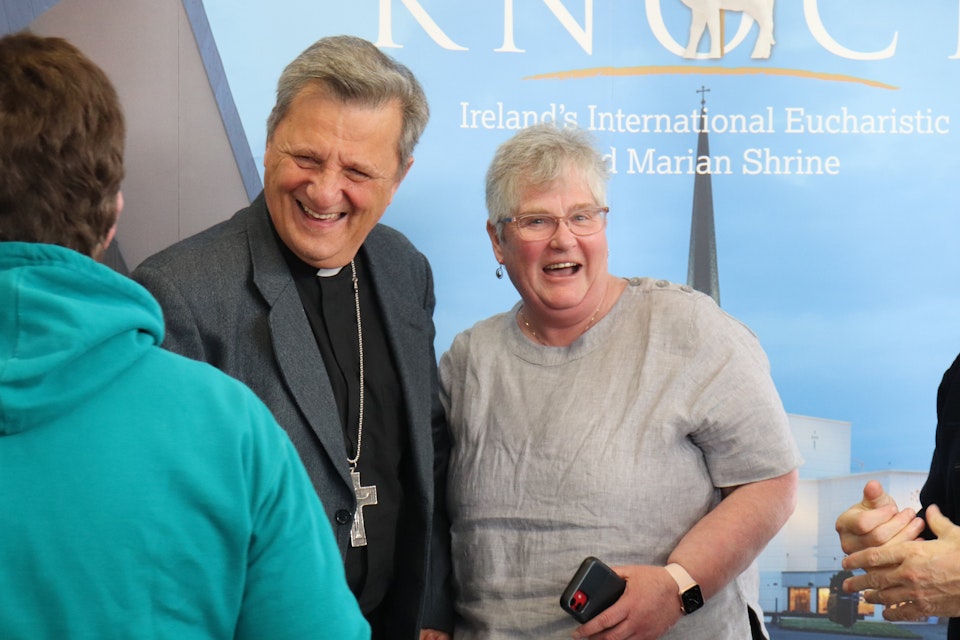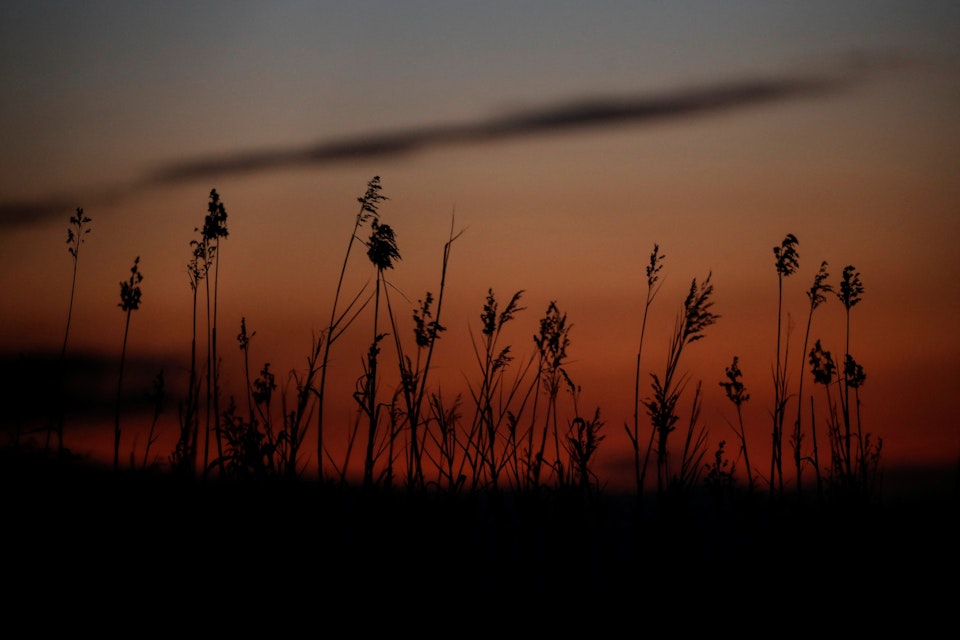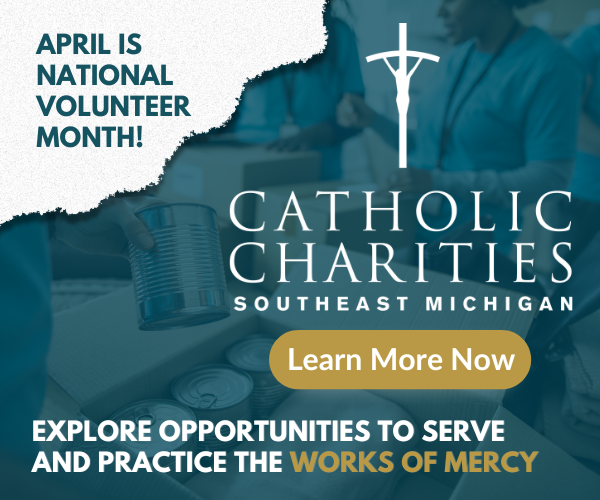Student-organized medical mission trip let club members see suffering firsthand, learn how to alleviate it
Editor’s note: This story was written before the COVID-19 pandemic began in Michigan. In order to recognize the students’ accomplishments, Detroit Catholic is publishing it now.
BLOOMFIELD HILLS — While some high school students spent their February spring break with their families on the ski slopes or at the beach, nine young men from Brother Rice High School spent theirs in Costa Rica — but not on the beach.
Instead, the boys traveled to the Central American country on a medical mission trip to assist with and learn about the needs of the impoverished community in Alajuela Province just outside the capital city of San Jose.
Gabriel Biondo, then a junior, organized the trip with the help of Brother Rice science teacher Bo Chumiecki. Biondo first considered Haiti as the group’s destination, but safety was a concern. Biondo and Chumiecki then worked with Global Works, a travel company specializing in service and immersion trips, to create an itinerary to Costa Rica with a health care focus.
“We found Costa Rica to be a good destination because it has a population we can help and doctors we can assist,” Biondo said.
The trip was open to members of the school’s Medical Club, a year-old club Biondo founded that as of February had 79 active members. The club gathers biweekly to meet and learn from medical professionals in a broad range of disciplines. The club is a chapter of Health Occupation Students of America (HOSA).

“Many of our graduates continue to a pre-med track in college and find careers in the medical field,” said Chumiecki, the Brother Rice Medical Club’s moderator. “As a science teacher, I wanted to inspire my students to expand their knowledge beyond our regular program and give them the opportunity to make connections with health care professionals.”
The weeklong journey to Costa Rica began with two days at a clinic run by the Foundation for International Medical Relief of Children (FIMRC). The clinic serves Nicaraguan refuges and needy Costa Rican citizens, mostly women and children, who do not have medical insurance or access to other health care options. Political unrest in 2018 and lack of opportunity in Nicaragua have caused more than 12,000 immigrants to settle in the region.
The clinic is located in a small house with just a few rooms. Supplies are scarce at the free treatment center; the Brother Rice group brought ibuprofen, bandages, antibiotic ointment and other necessities from a medical supplies drive Biondo organized.

For two days, the boys volunteered at the clinic, rotating through four areas: shadowing the physician during patient appointments, assisting in the pharmacy, taking inventory of medicine and supplies, and helping with check-in by taking the patients’ blood pressure, height and weight.
Brother Rice sophomore Christian Stipho was saddened by the situations he observed at the clinic. Mistreatment against the immigrant women is common, and many of them are separated from their children in Nicaragua to work in jobs where they are often abused. One pregnant woman had been thrown from a two-story building by the men for whom she worked, and as a result, had a miscarriage.
“It made me see a new perspective,” Stipho said. “We’re so privileged, and there are people I never even thought of that are in the world and really struggling.”
Following their clinical rotations, the group toured an aqueduct in a rural community that previously relied on contaminated well water. The boys planted fruit trees nearby and learned about the importance of rotating plant varieties for healthy soil.

Later in the week, they visited two women in the village of La Tigra who recycle products from the region. They spent the day flattening cans, sorting materials and filling a truck with cardboard that would save valuable water and forest resources. These non-clinical activities helped the group realize the impact of environmental issues on human health.
“They don’t have a recycling program like we have here in the U.S.,” Biondo said. “These women do this on their own and recycle enough to impact the whole community.”
The boys also enjoyed some down time, going ziplining one day and swimming beneath a waterfall another. On the Sunday after they arrived, they went to Mass in San Jose with the added excitement of a lively procession to celebrate the 100th anniversary of the Archdiocese of San José de Costa Rica. Catholics gathered at the Church of Our Lady of Solitude and then walked together to the Metropolitan Cathedral of San Jose for Mass, singing and clapping along the way.
Biondo’s family is Italian and has attended processions at Holy Family Catholic Church in Detroit.
“I’ve been to processions before, but nothing like this,” Biondo said. “It was nice for me to connect and see the similarities to my culture, and to attend a Mass in a different language (Spanish).”

The trip made an impact on the young men, all of whom are considering a medical career.
Senior Jase Pearson felt fortunate to attend Brother Rice’s first-ever medical mission trip. He plans to attend Michigan State University in the fall, most likely to pursue a degree in psychology or pre-med.
“I think it’s important to learn the differences — to know how other people are living differently from us,” Pearson said. “After this, I’ll definitely consider studying abroad in college. I think it will make me better in my career.”
Chumiecki, who immigrated to the United States from Poland, was happy when Biondo pitched the idea of a medical mission trip to her.
“It is important for me to introduce our students to different cultures and to show them diversity and make them aware that even though we might have different religious, economic or political backgrounds, we are still interconnected as global citizens,” Chumiecki said. “One of the most enjoyable things for me is to observe students getting out of their comfort zone and figuring out ways to solve problems and look outside of the box.”
Biondo, who volunteers as a laboratory assistant at Henry Ford Hospital and had planned to present a paper to the American Academy of Neurology in April, says the trip brought to life what he learns in the classroom each day.
“Brother Rice taught me it’s not OK to let people suffer, and it’s our job as Catholics to be sure that people are taken care of humanely and with compassion,” Biondo said. “It’s easy to judge until you talk to people first-hand. Then you realize it’s important to use your talents to help wherever possible.”
Biondo hopes that after he graduates in spring of 2021, the Medical Club at Brother Rice will continue to grow and offer the trips annually.








